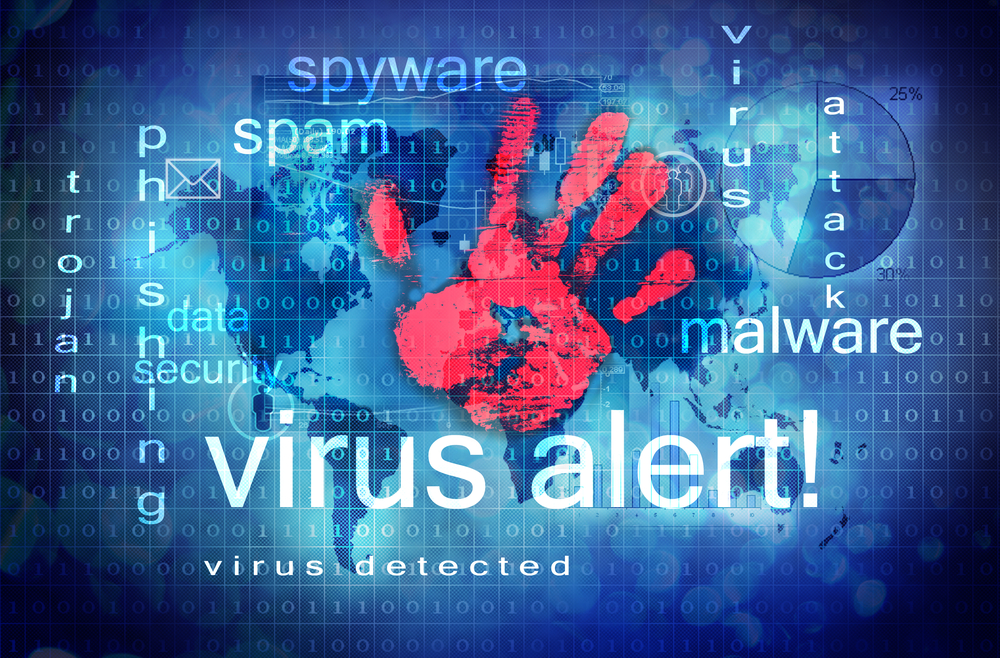While you are busy spending your time online promoting your company’s products and trying to build a good reputation for your business, others spend time creating malicious software programs that, at the very least, undo all your hard work and threaten to cripple your business or reduce its functional capacity. Spyware is one type of malware, and is may be gaining in popularity among cyber criminals for its potential to spread rapidly among networks and cause significant amounts of damage.
What Is Spyware and How does it Work?
Spyware, along with the malicious software called “adware,” falls into the broad category of “malware,” which refers, generally, to sophisticated software programs designed to cause harm to computers. Occasionally, spyware is used for legitimate purposes, such as monitoring the use of websites and tracking users’ electronic whereabouts for marketing and licensing purposes. However, it is much more frequently used as a tool to commit crimes.
Cyber criminals use spyware to access individual computers or entire corporate networks, primarily for the purposes of obtaining critical, confidential information such as passwords, banking information, and access to credit card accounts. This information is then returned to the hackers, and usually passed on to their accomplices for fraudulent use.
One of the most frightening capabilities of spyware is its ability to enter and infect your computer without your knowledge. Unlike worms and viruses, which may make your system noticeably slower or allow pop-ups and infiltrate your email and files with spam, most spyware embeds itself in your computer without any indication of its presence. These programs, once installed, secretly track your every electronic move. Cyber criminals send spyware to your computer, where it gains access to your financial and personal files.
Recognizing Right From Wrong
In the world of electronics and software, telling the good from the bad is not always black and white. This is particularly true for novice web users. It often takes a critical eye to distinguish spyware from its benign counterpart, which is legal software, known as “shareware” or “freeware.” Adding to the problem is the fact that many spyware programs appear to be legitimate shareware programs, anti-spyware, and anti-virus tools, and lure users into downloading them.
So the next time you decide to download new software, how can you tell which programs are safe, and which are not? One key indication of fraudulent programs is that they often seek you out, and appear as advertisements or web pop-ups begging you to install them. When you click on the pop-up window and activate the installation, the malicious programs work their way into your computer’s hard drive and disable the system. They then deliver messages of a system error or malfunction, and demand monetary compensation for removal.
You can also tell which programs are genuine by doing a search on Google or other search engine. When you type in the name of a product or tool, the authentic ones will have user reviews and ratings, and generally come from companies with recognizable names and good reputations.
How You Can Defend Against Spyware
Your best defense against harm from spyware is to prevent it from attacking your computer in the first place. You can do so on your own by setting up pop-up blockers and firewalls on your internet settings. Most of these tools are easy to install and use, but require regular updates and maintenance to ensure they are adequately defending your computer networks.
You can also purchase and install reputable anti-spyware programs like Immunet, Malwarebytes, Spyhunter etc. These software programs vary in quality and price. Some are better than others, and contain more protective features. Some corporations enlist the assistance of third-party providers to help monitor web traffic patterns, internal practices, determine overall risk exposure, and recommend and install anti-spyware programs.
Spyware is one of several malicious software programs that may infect your computer. These tools may be used by cybercriminals to access valuable personal information, including banking and financial accounts, retrieve identification information, and gain access to user passwords. Spyware often shows no signs of existence upon entering a computer system. By using anti-spyware programs, you can stop spyware from damaging your networks.
Are you safe…?
It’s one of the common question for all computer and Internet users but do you have an answer? Do you know how one can stay protected in virtual network? What are the measures one should take to protect their data? How do you do so…Share your valued opinion.
Images: ”antivirus / Shutterstock.com“
__________________________________________________________________________________
 Connect with Tweak Your Biz:
Connect with Tweak Your Biz:
Would you like to write for Tweak Your Biz?
Tweak Your Biz is an international, business advice community and online publication. Today it is read by over 140,000 business people each month (unique visitors, Google Analytics, December, 2013). See our review of 2013 for more information.
An outstanding title can increase tweets, Facebook Likes, and visitor traffic by 50% or more. Generate great titles for your articles and blog posts with the Tweak Your Biz Title Generator.
Want to get your business featured on Tweak Your Biz? Check out #TYBspotlight.


 Connect with Tweak Your Biz:
Connect with Tweak Your Biz:


